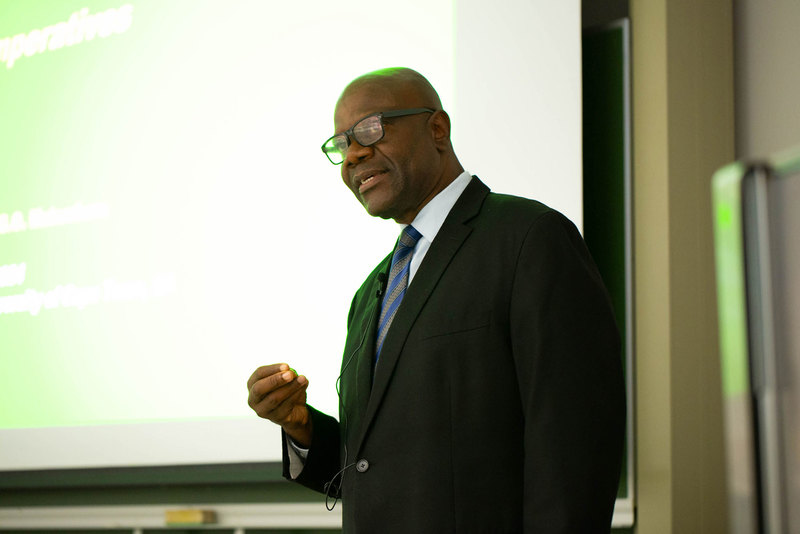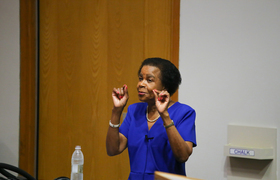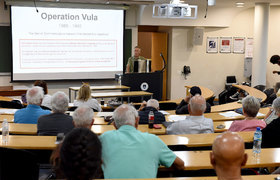‘Embrace global citizenry’
02 April 2024 | Story Kamva Somdyala. Photos Robyn Walker. Read time 3 min.
“Embrace global citizenry, wherever you are in the world”, said former deputy prime minister of Zimbabwe, Arthur Mutambara, while addressing a gathering of one of the University of Cape Town’s (UCT) societies – the Zimbabwean Society (ZimSoc).
“Documentation is important because it is part of contributing to knowledge; it’s about using intellect and knowledge to solve our problems. Those in leadership have very little ideas. Those with ideas, have very little power.”
Reading and writing culture
For Mutambara, to foster the culture of documentation he seeks, lies in an enriched reading and writing culture. “Getting a marriage between power and ideas is paramount. You do this by advancing a reading and writing culture. Documentation is divine – be it in academics, politics or business because every successful civilisation has had a reading and writing culture,” he said.
“Take for example the concept of ubuntu as a philosophical disposition which finds meaning on our continent [and] cannot be easily found elsewhere.”
“As Africans, we also have knowledge to give the world. Take for example the concept of ubuntu as a philosophical disposition which finds meaning on our continent [and] cannot be easily found elsewhere. This disposition can be used to run a university, to run a country and a company. It’s a very African way of doing things. There is much to learn from the Chinese and Singaporeans the world over; however, we must also learn from ourselves.”
The roadmap to achieving the envisioned collective documentation and knowledge sharing, according to Mutambara, also lies in people of the continent wherever they may find themselves.
“We must leverage our values system such as collective humanity, shared dignity and collective success. We must be clear on the vision of shared economic prosperity and inclusive economic growth for Africa. Moreover, from those principles, we need to have good governance, legitimacy and macro-economic stability and economic transformation.”
“Let us link continental integration to issues we face in our countries. I love the motto proverb because we must understand the feather as representing collective strength, harmony, and unity.”
ZimSoc president, Cheryl Sambadzai spoke on the society’s stance on global citizenry: “We believe that Zimbabweans are global citizens. We aim to harness the strength that comes with this global footprint [by] appreciating its rich cultural, intellectual, historical, and economic benefits. Through this realisation, we thereby open the society to best synchronise the versatility and multifaceted nature of the Zimbabwean being.”
 This work is licensed under a Creative Commons Attribution-NoDerivatives 4.0 International License.
This work is licensed under a Creative Commons Attribution-NoDerivatives 4.0 International License.
Please view the republishing articles page for more information.














